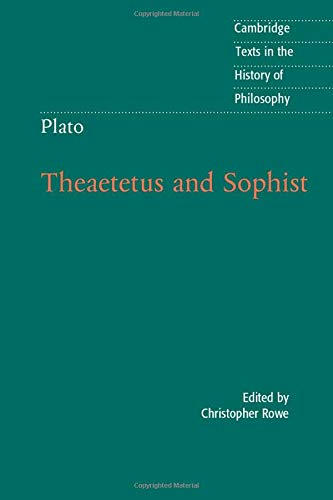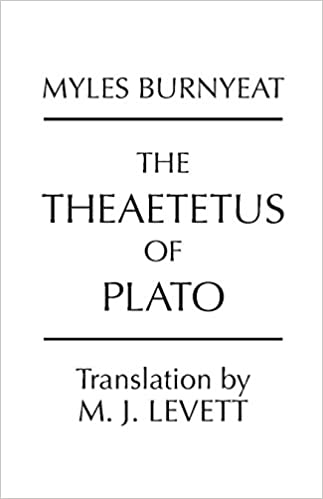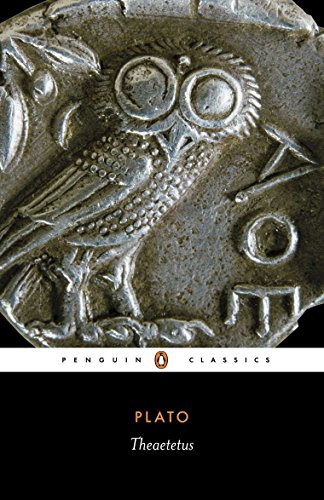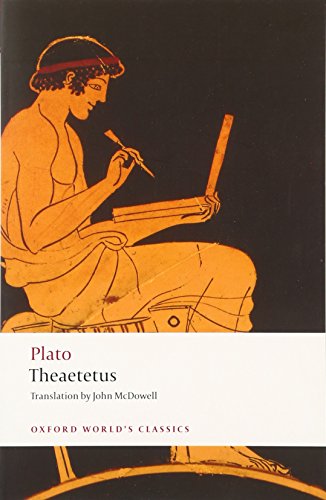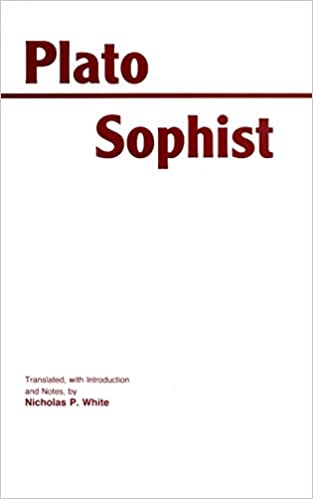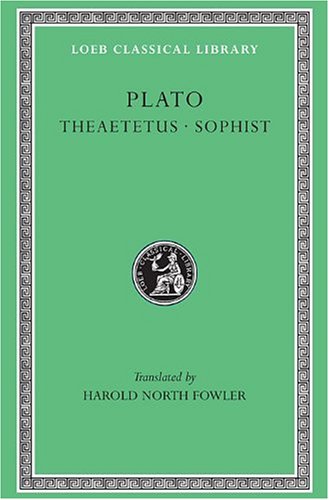Theaetetus, Sophist
by Plato
Theaetetus is one of Plato’s many texts known as the dialogues in which the philosopher goes over some of the tenets of his ideas. Named dialogues for their use of structure as simple conversations between the author and various other well known names of his age.
In particular, this dialogue covers the concept of knowledge. More so, the concept of knowledge as three different facets as Plato believes. The three different ideas of what knowledge is are debated and discarded as the conversation continues. No real consolation happens in regards to the topic as the discussion is cut off early.
Penguin offers their version of this key work pf Plato’s. Included is a good translation as well as notations at the bottom of the page (which is great for context and understanding as you read along) plus introductory and conclusory essays on the work as a whole. For the length of the essays though, they don’t do much to help the reader understand Theaetetus which is sort of a letdown with how Penguin usually operates, especially for this dense of a text. Its good for if you’re reading this in a class setting with a professor and peers to rebound ideas and understanding off one another, other than that maybe look towards one of the other editions. Hackett Classics also has a version that may be best suited for students. While the translation is good and concise, the background and aid in understanding all come at the beginning, which leaves the original text at the end. If you’re anything like me, reading work like this is best understood with context as you go along. While the introduction and essay on Plato and Theaetetus are well done, by the time the reader gets to the actual text, much of the introductory information may have been lost without grounding from Plato’s actual words. The best publication of this work would have to be Oxford World Classics’. John McDowell translates this piece and has a solid career under his belt as professor both at University College and University of Oxford, as well as various publications from Harvard University Press. A great introduction that settles Theaetetus into its position in the rest of Plato’s works is included, also great notes throughout that relate the authors ideals with the world around him and with philosophy as it has grown from then.
Sophist by Plato is one of the great thinkers works discussing the tenets of his ideals. Written as a series called dialogues, they all take place as conversations between the author and other well known names of his day.
This text goes over the difference between sophists and philosophers. A distinction that points out the subject matter of what both thinkers believe and focus on. As well, there is discussion of philosophy sophistry in relation to politics. Many readers compare this work with others in the series of dialogues to better understand the distinction between the two types of thinker as Plato has had both characters in his other works.
Hackett Classics offers a version that is nothing to balk at. Easy to read and plus a good breakdown of central arguments makes this edition one to consider. However, compared to other editions this one often falls to the wayside. That being said, most other versions combine Sophist with Plato’s earlier work Theaetetus, so if you’re looking for only Sophist this one will get you what you need. If a combined effort isn’t something that dissuades you then consider these other editions. Loeb Classical Library had editions ranging all of Plato’s works. They offer a no-nonsense translation and notes to consider for other possible Greek to English translation options for those words that don’t transfer as great. Rather short introduction is also in place for a quick primer. Cambridge Texts brings the most to the table. A great introduction by also translator Christpher Rowe give incite on the details of the work and language. That combined with notations throughout in regards to context, modern thoughts, and relation to the rest of Plato’s ideas make this edition the best for your search.
